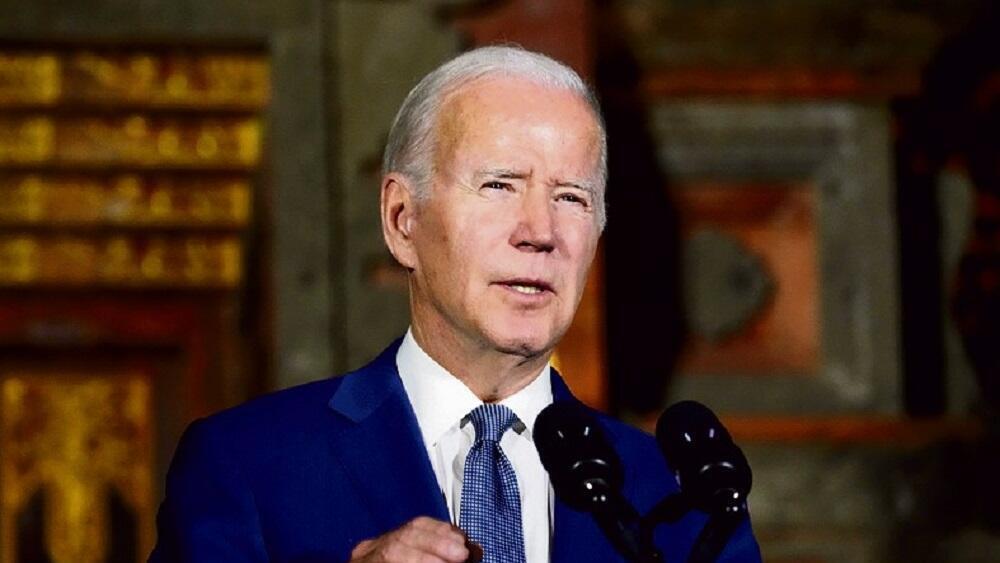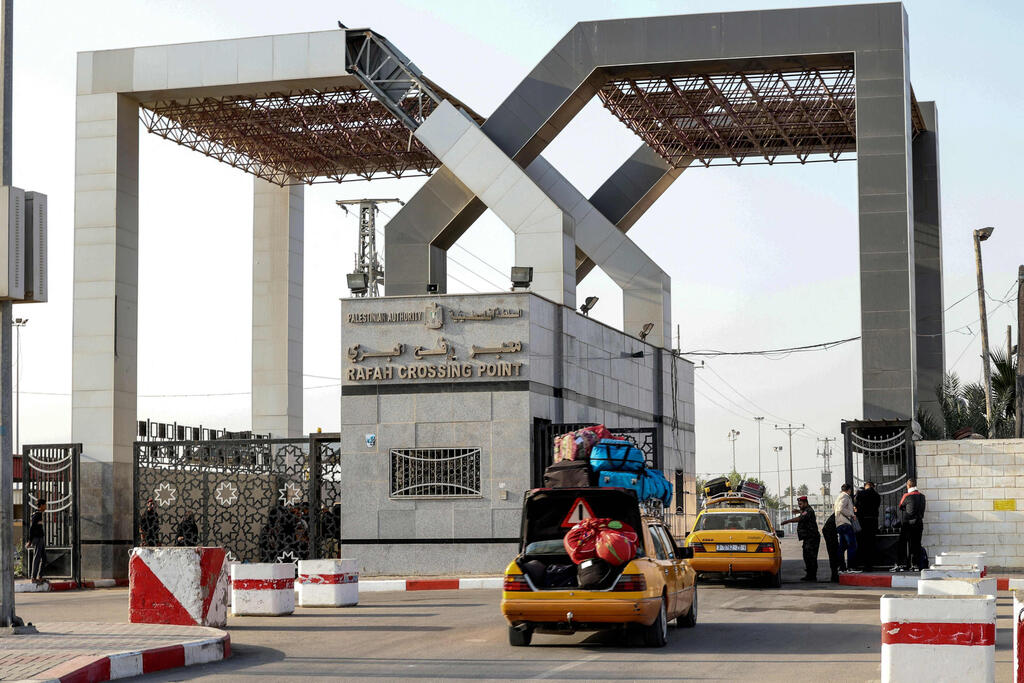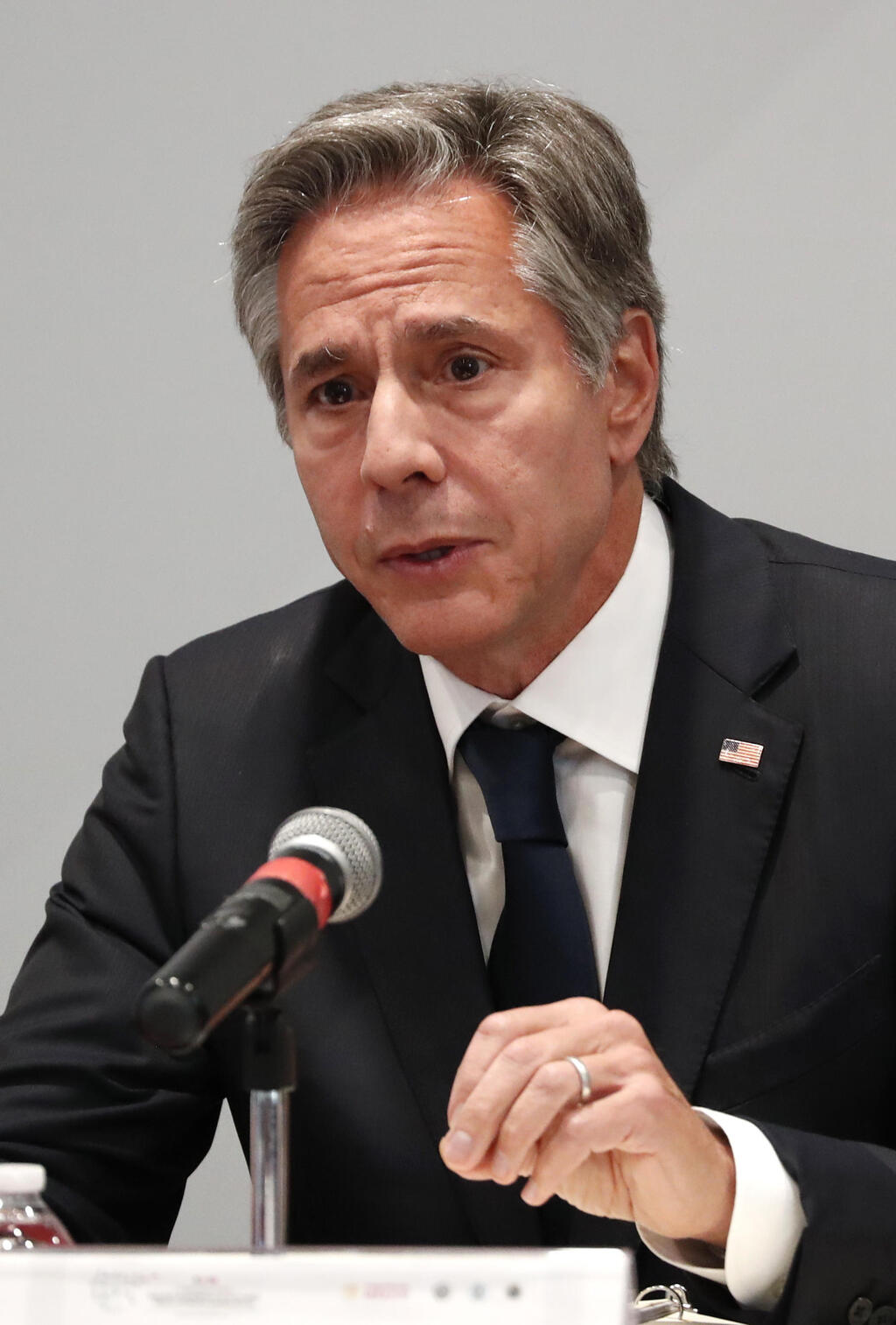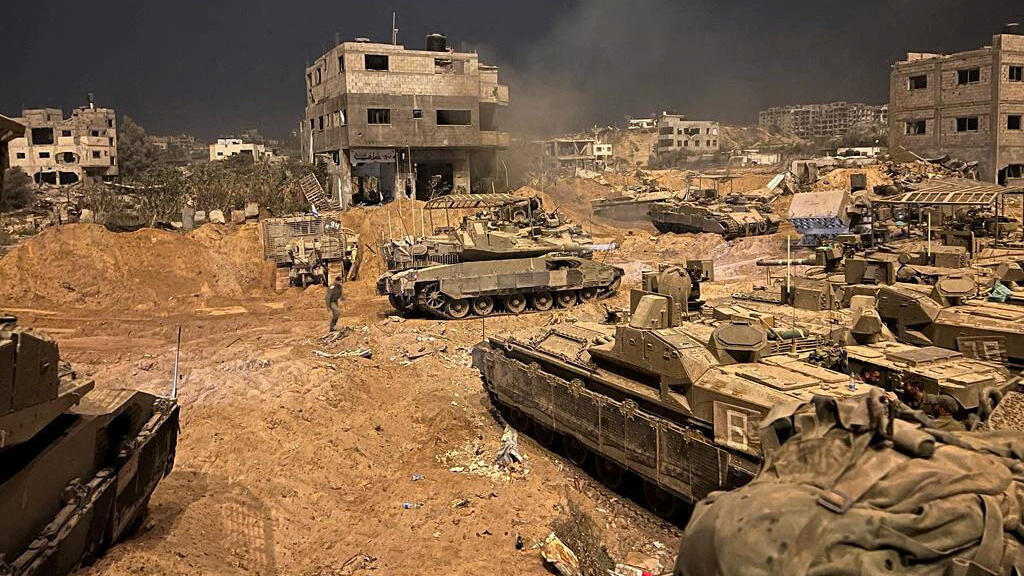Getting your Trinity Audio player ready...
In a bid to facilitate hostage release and humanitarian aid distribution, U.S. Secretary of State Antony Blinken will urge Israeli leaders to pause their military operation in Gaza, the New York Times reported on Thursday quoting White House officials.
Read more:
This call for action follows U.S. President Joe Biden's disclosure on Wednesday about a previous commitment from Israeli Prime Minister Benjamin Netanyahu. The Israeli leader had consented to a temporary cessation of bombardment on October 20, enabling the safe transfer of two U.S. citizens, 59-year-old Yehudit Raanan and her 17-year-old daughter Natalie from their Hamas captives to the Red Cross and across the border to Egypt.
The officials told the paper that the temporary halts bear no resemblance to a complete cessation of hostilities. They believe that an all-out ceasefire would benefit Hamas. Nevertheless, Biden faces growing demands to address the acute humanitarian crisis in Gaza, identified by aid organizations as a pressing concern. The region's civilian population is grappling with scarce resources, including food, water, medical supplies, and fuel. Further compounding the situation was a recent attack on a Gaza refugee camp, resulting in dozens of casualties. This incident occurred concurrently with Israeli authorities' announcement of the elimination of a high-ranking Hamas official.
During a Wednesday evening fund-raising event in Minneapolis, Biden was faced with a protestor insisting on a call for a ceasefire. In response, the President shared his view, saying, "I think we need a pause. A pause means give time to get the prisoners out."
"I’m the guy that convinced Bibi to call for a cease-fire to let the prisoners out," he said. After his comment National Security Spokesman John Kirby said the president meant a short-term interruption in Israel's offensive, not a widespread cessation of the fighting in Gaza.
"What we have said should be considered and explored are temporary localized humanitarian pauses to allow aid to get to specific populations and maybe even to help with the evacuation of people that want to get out, move more to the south," Kirby said. "We do support that. We do not support a cease-fire at this time."
5 View gallery
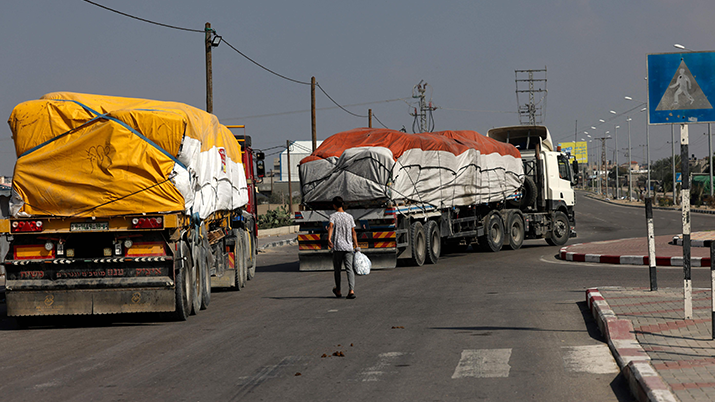

Trucks carrying humanitarian aid at the Rafah crossing into Gaza
(צילום: Mohammed Abed / AFP)
"Israel must take all possible precautions to avoid harm to civilians," Blinken said earlier. "It means food, medicine and water and other assistance must flow into Gaza and to the areas people need them. It means civilians must be able to get out of harm’s way. It means humanitarian pauses must be considered for these purposes."
The officials said there were continued efforts to negotiate hostage releases with the mediation of Qatar that could bear fruit, and if successful, may prompt the IDF to temporarily halt fire in the area where hostages may be freed from.
As per the authorities, a significant worry is the safe delivery of aid to the residential areas using trucks without exposing them to the risk of Israeli air strikes or being trapped amid incessant gunfire between IDF troops and Hamas militants. The official reiterated the mere delivery of aid is fruitless if residents are too scared to leave their homes to access it.
Mr. Blinken will appeal to Israel to contemplate short-term halts to enable safe transit for the aid trucks. White House representatives indicated Netanyahu and other Israeli authorities continue to resist a comprehensive cease-fire, but they seem open to the notion of additional temporary halts in the conflict for such objectives.


